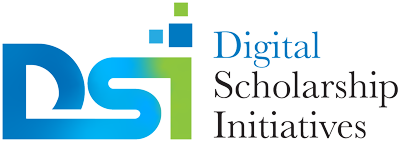DIGITAL HUMANITIES: THE DH SEMINAR SERIES AT MTSU
Join us for brown-bag sessions on digital humanities, jointly hosted by Walker Library and the Association of Graduate Students in History. The goal of the seminar series is to bring DH awareness to campus, giving students and faculty a chance to learn and explore DH topics and gain experience with DH scholarship. Each seminar has a keynote speaker and topic and is followed with an open discussion forum including project design questions, digital resources, best practices, theory and others. Attendance is welcome from anyone on campus with DH interests.
Interested in presenting at the DH Seminar Series? Tell us about your idea at https://dsi.mtsu.edu/suggest
Previous Seimars
Here are some of the topics we’ve covered so far.
- April 7, 2017: “How to Read the Republic of Letters: Digital Network Analysis and the Correspondence of Athanasius Kircher (1633-1680)” with Dr. Suzanne Sutherland, History Department
- November 11, 2016: “Defining Digital Humanities and the Future of DH at MTSU” with Dr. Molly Taylor-Poleskey, History Department
- October 14, 2016: “Playing Reality? Representations and Discourse of Domestic Violence in VR” with Dr. Stephanie Dean, New Media Communication Department
- September 16, 2016: “Transportation Archaeology through a Geospatial Lens” with Zada Law, Director of the Fullerton Laboratory for Spatial Technology
- April 1, 2016: “Public History PhD Candidate Showcase”
- March 4, 2016: “Oral History and Podcasting” with Dr. Kyriakoudes of the Gore Center.
- November 13, 2015: “From Paper to Points, Polygons and Pixels: Historical GIS at MTSU” with Zada Law, Director of the Fullerton Laboratory for Spatial Technology
- October 30, 2015: “StoryMaps: Historical GIS Presentation” with Ken Middleton of Walker Library Digital Initiatives
We want to hear from you. Suggest a future digital humanities topic or speaker.
